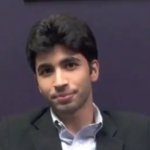Seminars
Our unique seminars are designed to deepen your understanding of urban dynamics and cultural diversity, with a special focus on the rich, multifaceted environment of Philadelphia. Here, you’ll engage in comprehensive research, field studies, and projects that enhance critical thinking, cultural awareness, and practical skills.
In our 16-week semester program, you will take a city seminar that incorporates your experience in the workplace and in the city with your academic coursework. Our intensive Cultures & Communities city seminar meets once a week and often fulfills general education, diversity, or major- or minor-specific requirements. Students who participate in our 8-week summer program will take the four-credit seminar.
TPC’s four-credit/one-unit seminar often fulfills specific requirements on your home campus. Meet with your on-campus academic advisor or department chair to learn more about credit transfer. You can email [email protected] with any questions or for more information.
Course Descriptions
- TPC 412: Directed Study – 4 credits/1 unit
This course offers an in-depth exploration of urban dynamics, with a special focus on Philadelphia. This course is tailored to provide students with a rich, hands-on experience in urban research and field studies. It combines individual and group projects that enhance critical thinking, cultural awareness, and research skills, particularly in urban contexts. Students will delve into the complexities of urban challenges and the diverse communities within Philadelphia through both group and individual projects. A significant aspect of this course is the completion of a research design project centered on a Philadelphia-based study. Offered in the fall and spring semesters.
- TPC 402: Cultures & Communities – 4 credits/1 unit
Cultures and Communities delves into the complex tapestry of Philadelphia’s cultural diversity and socio-economic segregation, one of the most prominent features of urban centers in the United States. This course aims to unravel how Philadelphia, a city known for its multiethnic, polyvocal, transtemporal, and geographically nuanced characteristics, also emerged as a symbol of racial and socio-economic segregation. Offered in the fall, spring, and summer semesters.
I got to meet people from across the world, from the entertainment industry, the financial world, in technology and human resources management. You get to use what you’re learning at work and talk about it in class. You get to explore and understand why you’re doing what you’re doing at work, and the value behind it.
